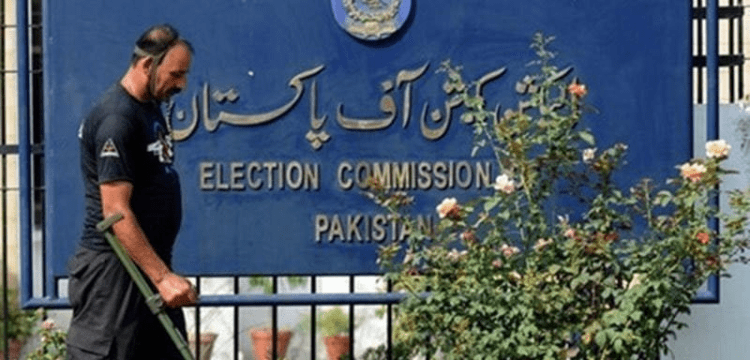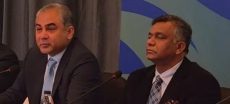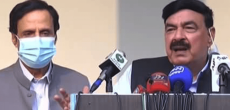[vc_row][vc_column][vc_column_text dp_text_size=”size-4″]ISLAMABAD: The Election Commission of Pakistan (ECP) informed President Arif Alvi on Saturday in no uncertain terms that he has no part in announcing the dates for general elections to provincial legislatures and that the commission is aware of its constitutional duty in this regard.
According to Article 48(5) of the Constitution, in cases where the President dissolves the National Assembly, he must set a date for elections and appoint a caretaker ministry in line with Article 224 or, where applicable, Article 224-A. Similar to that, when a provincial governor abrogates Article 105(3)(a), he must set a date for the assembly’s general elections and appoint a caretaker ministry. Sikandar, Chief Election Commissioner. A copy of the CEC’s letter, which alerts the president of the commission’s Article 218 constitutional duty to organise and conduct elections.
The letter also criticises the president’s use of language, stating that the president’s office is the highest constitutional body and that he or she is the head of the state, while all other constitutional and legal bodies are required by law to show the highest level of deference to the president’s office. We are confident in its objectivity, anticipate parental direction from this distinguished office towards other constitutional organisations, and anticipate better word choice when addressing such institutions.
Ten days after the president’s letter to the ECP and one day after Mr. Alvi sent another letter, this one inviting the CEC to an urgent meeting on February 20 to discuss the general election date discussions, the ECP responded. The president complained in his letter to the CEC that the commission’s lack of response to his earlier letter had shown “apathy and passivity.”
Mr. Alvi claimed that despite anxiously anticipating that the ECP would recognise its obligations under the Constitution to act, he was shocked by the commission’s “poignant” handling of this crucial issue. The CEC writes that the commission is making every effort to carry out its constitutional obligations free from intimidation or pressure.
It states that on January 14 and January 18, respectively, the provincial assemblies of Punjab and Khyber Pakhtunkhwa (KP) were dissolved. Following this, it contacted the governors of both provinces and requested they announce the dates for the general elections. Reminders were also sent to them on January 29. The Lahore High Court ordered the ECP on February 10 to hold a consultation meeting with the Punjab governor and set a date for the elections in response to petitions filed by the Pakistan Tehreek-i-Insaf (PTI) and three other parties.
According to the report, the Punjab governor met with the director general of law, special secretary, and secretary of the electoral commission on February 14. The governor expressed sorrow for having announced the election date and his intention to seek legal advice.
“The Election Commission has taken all necessary preparations in this regard and is fully aware of its constitutional responsibility to organise and conduct the election. It won’t be out of place to remark that, according to Articles 48(5) and 105(3) of the Constitution, respectively, the roles of the Hon. President and the Governor of a Province are both clearly outlined.
It emphasises that, in the event of dissolution, the Commission is not permitted by the Constitution to set a date for general elections to an assembly. It claims that the Commission was given the authority to plan and carry out the Senate election in Pakistan, as well as any by-elections held for Assemblies under Section 102, without consulting anyone. In this regard, it has performed satisfactorily because a large number of by-elections for the Senate, National Assembly, and provincial assemblies were held on schedule and without delay on the part of the Commission. The most recent instance is the prompt declaration of the election dates for National Assembly seats from which MNAs have resigned, the statement notes.
According to the CEC, if the Constitution’s drafters had intended to provide the commission the authority to announce the polling date in the event of the dissolution of an assembly, it would have been expressly stated in Articles 48, 58, 105, or 112. In addition, the Elections Act of 2017 does not grant the commission the authority to announce a polling date outside of Senate elections and all by-elections.
He claimed that the Lahore High Court stated that the commission must consult the governor when choosing the polling date when interpreting several Constitutional clauses. The Election Commission decided to file a civil miscellaneous application before the Lahore High Court requesting additional information after meeting with the Punjab governor.
[/vc_column_text][/vc_column][/vc_row]











